Review’s best books of 2021
In a locked-down year marked by a mega lonely ache for our previous life, fiction and non-fiction were the refuge we needed.
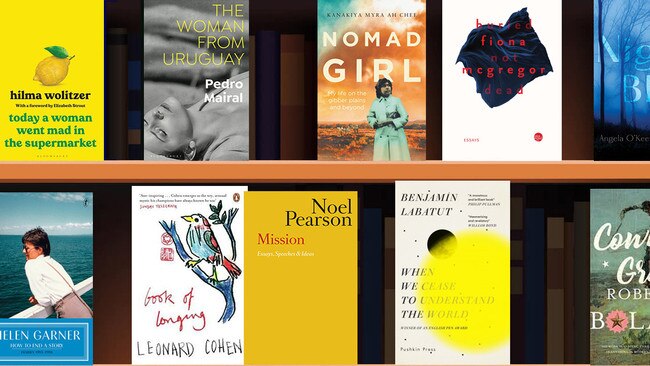
It has been a joy to publish reviews by Australia’s finest critics this year. Several of them, plus two booksellers, have this week agreed to share what they really enjoyed in their private reading time for our Best Books of 2021.
My “best books” – meaning, the ones I most enjoyed – were these:
Helen Garner’s How to End A Story (Text) sizzles like a Christmas sparkler. What a writer she is, and what a delicious little peek behind the apartment door she has given us.
Night Blue (Transit Lounge) by Angela O’Keeffe, who had a bold idea – to tell the story from the perspective of the painting – and pulled it off.
The Woman from Uruguay (Bloomsbury) by Pedro Mairal, about a man who travels to Montevideo with $15,000 in his top pocket that he cannot afford to lose. Described by The Sydney Morning Herald as being entirely unnecessary since it is about a man who can’t help wanting to have sex with women, I naturally adored it.
Today a Woman Went Mad in the Supermarket (Bloomsbury) by Hilma Wolitzer, a book of short stories by a writer now in her 90s, this is a tender portrait of a long marriage which ended with the Covid death of her husband of more than six decades.
Nomad Girl, a spoken word history by Kanakiya Myra Ah Chee,also now in her 90s, telling the tale of the hunter-gatherer lifestyle she lived as a child.
When We Cease To Understand The World (Pushkin Press) by Benjamin Labatut is about scientists and mathematicians but really it’s about the social cost of having a brain too big for this world.
Finally, The Book of Longing by Leonard Cohen (Penguin Australia) which is not new but was given to me as a particularly tender gift during a long period of separation brought about by border closures.
That’s all from us this year. Thank you for making me feel so welcome in the Literary Editor’s chair.
We will be back next week with Geordie Williamson’s analysis of the books to look out for in 2022, and I’ll be back after Australia Day to read and muse again with you.
-
Geordie Williamson
Helen Garner’s third and final volume of diaries to be published, How to End a Story (Text), covers the years between 1995 and 1998, a period when the author’s marriage fell apart. To read her account is to be made privy to nothing short of a domestic harrowing – a tale by turns cruel and grotesque.
But while the pain of her situation is served bloody raw, the diaries are not overwhelmed by negative emotion. Instead, it is Garner’s attentiveness to the world – the sound of birdsong, the quality of light over Sydney Harbour, the feel of a newborn against an adult chest – which stays with the reader. This is the saddest of stories, of course. It is also the triumphant account of one of our great writers finding a path back to her work.
Giramondo, that small but perfectly formed publishing outfit based at Western Sydney University, has given us some special books this year. I’m thinking of Anwen Crawford’s elegantly polemical collage-essay No Document and Evelyn Juers’ loving biography of Phillippa Cullen in The Dancer – but there is another Giramondo title deserving of note: Fiona McGregor’s Buried Not Dead.
McGregor is a novelist by day, but also a fiercely incisive critic with her left hand. This latest collection, culled from essays written over a number of years, reports back from the bleeding edge of contemporary culture, whether local or international. Want to understand the artists, writers and activists who are currently making and remaking our world? McGregor is your brilliant and wholly unfiltered guide.
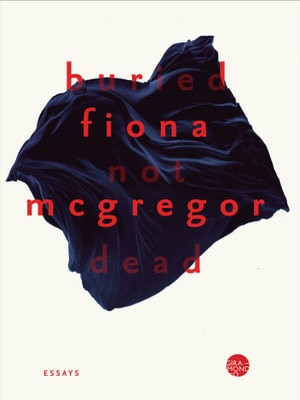
Offshore, Lauren Groff’s Matrix (PRH) boldly reimagines the place of women in medieval Europe and England through the life of one Marie de France, a real nun and visionary of the 12th century. But the American novel I most enjoyed was Jonathan Franzen’s Crossroads, the first of a trilogy exploring the shifting circumstances of one Midwestern family from the 1970s onward. I loved its panoptic ambition and old-school fascination with character and family.
If Thomas Mann had grown up in the 1960s and learned to drive a Plymouth Fury, this would be his Buddenbrooks.
Finally, two superb outliers. Leaping Into Waterfalls(A&U) is Bernadette Brennan’s biography of Australian author Gillian Mears. A fine scholar with a calm, companionable manner, Brennan is the perfect life-writing foil for a subject who lived a short life of frenetic, admirable, and ultimately tragic excess.
Speaking of excess: at 900-plus pages, Nobel Prize-winner Olga Tokarczuk’s The Books of Jacob (Text) is the long-awaited translation of her masterpiece.
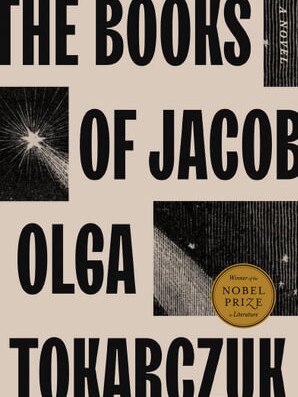
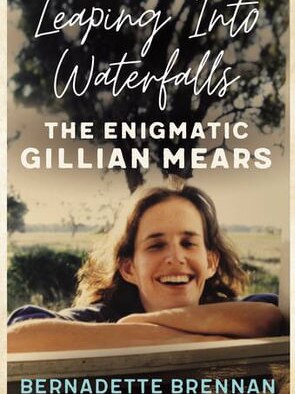
The Polish writer’s epic account of European Jewry in the 17th century – a brilliant, vibrant, intellectually questing and perennially-benighted community whose glory and curse is to be forever inassimilable into the world in which they are born – is a marathon effort which displays in its unfolding the great virtue of the novel form.
Which is to say: The Books of Jacob celebrates difference, simply by allowing human variousness to unfold through story. And what a story Tokarczuk has to tell, of a false Jewish messiah whom you can’t help but give reverence to.
Geordie Williamson is The Australian’s chief literary critic.
-
Beeyjay Silcox
If I’d been told at the beginning of the year that my favourite novels of 2021 would be about a formidable nun and a daredevil aviatrix, a trickery artist, and a bear, I wouldn’t have been surprised, but it is heartening to have your suspicions about yourself so joyfully confirmed.
I had the pleasure of reviewing Lauren Groff’s heretical romp, Matrix (Penguin Books Australia) for these pages. It’s the tale of a royal bastardness, Marie de France, a gangly, unmarriageable nuisance in the court of Eleanor of Aquitaine. Banished to a nunnery, scheming Marie builds an empire in revenge.
With a cast of weird and wayward sisters, and language as rich as abbey honey, Matrix is a literary epiphany: a novel of cloistered power, ecological regret, and queer joy.
How I delighted in all the medieval grit and grot, and the doctrine-rattling antics of Groff’s wimpled autocrat.
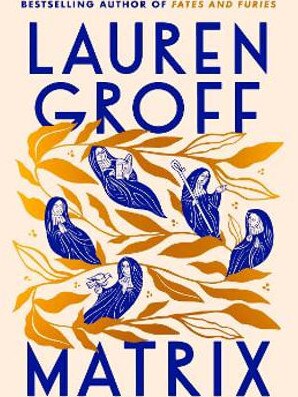
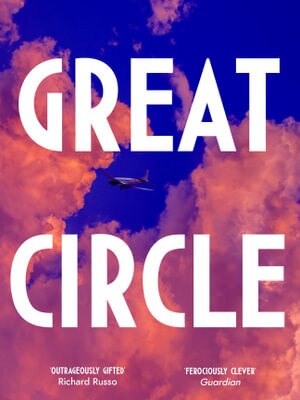
It’s been a year of colossal novels: Jonathan Franzen, Anthony Doerr, Dave Eggers and Ruth Ozeki’s new books are all literary doorstops. But of all of the mega-fiction I read this year, Maggie Shipstead’s Great Circle (Penguin Books Australia) was the only novel I dearly wished was longer.
I rationed the last precious pages of this 600-page epic. On a Hollywood movie set, the mythic disappearance of a pioneering female pilot is being given the blockbuster treatment – all big budget gloss and confection.
But as the actress due to play the title role prepares, the true story of the lost adventurer unspools before us.
It’s a tale of aviation’s golden age with its barnstormers, bootleggers and dashing record-breakers; a big-hearted, globe-crossing delight. Great Circle invites airborne praise: how this novel wheels and soars!
Shipstead slips into the cockpit of history, and takes it for a joyride.
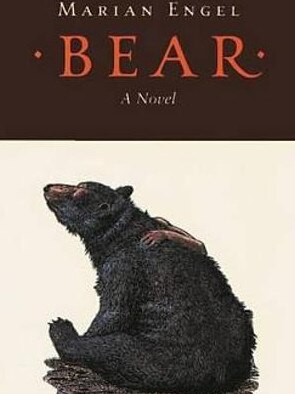
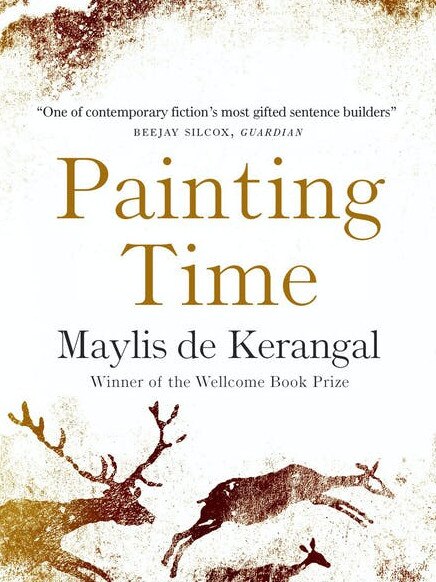
I’m late to the appreciation parade, but I finally read Marian Engel’s novella, Bear (Daunt Publishing) and was so awestruck by it I was almost angry – pure literary jealousy. Recently reissued, this 1976 Canadian cult classic is crouched and waiting for new readers.
When an archivist is sent to catalogue a library bequest on a remote Ottawan island, she finds herself responsible for a long-captive bear. The archivist is lonely. The northern nights are cold. And outside, the chained animal paces, hot-breathed and hungry. Imagine if Margaret Atwood rewrote an Angela Carter fairy-tale, or one of Aesop’s Fables was hijacked by Krissy Kneen. Bear is carnal and humane; red-clawed, full-hearted and magnificently taboo.
And finally, there’s Maylis de Kerangal’s Painting Time (Hachette) a tale of trompe-l’œil artists, those “bamboozlers of the real” who can mimic natural surfaces – like woodgrain or tortoiseshell – in pigments and lacquer.
This criminally under-read novel is a marvel of colour and light; lavish with painterly prose. It’s a tale of the slippery difference between what‘s real and what’s true – of veneers and illusions – a book that invites us to see the world through art-making eyes.
Four novels of obsession. Four novels that give shape and texture to loneliness. Four novels of women at the sharp edge of something: the edge of faith; the edge of the mappable world; the edge of propriety; the edge of creation.
In some ways, they couldn’t be more different but in a locked-down year, where I often felt trapped in my own brainbox, they offered that most elemental of reading joys: escape.
Beejay Silcox is a writer and critic.
-
Jane Turner
I read differently this year. I tended toward lighter and breezier novels, often devoured in one sitting, as opposed to literature I would normally read over many hours through the week. It was an escape, I can see that now, from the doom and monotony of the pandemic.
That said, I also read my first ever Kazuo Ishiguro novel, Klara and the Sun,and all seemed right with the world again. I loved this book and will now read every Ishiguro I can get my hands on. How had I not read any of his beautiful writing before?
Other standouts for me were The Midnight Libraryby Matt Haig, with the chance it offered to right a few wrongs.
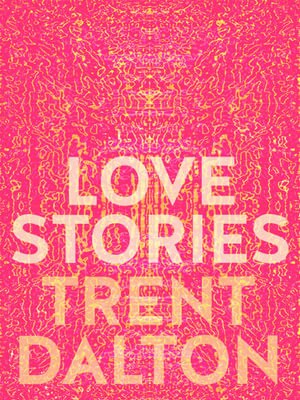
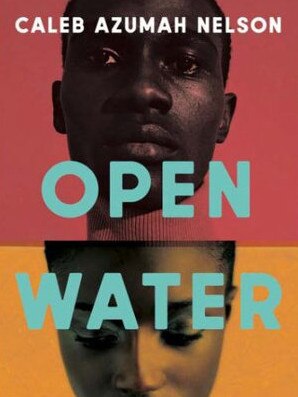
The times also seemed right for more than 100 unforgettable short tales, in Love Stories by Trent Dalton, and a YA novel for all ages, 100 Remarkable Feats of Xander Maze, by fellowcafe/bookstore owner Clayton Zane Comber.
Our Gertrude & Alice book club, which we also call The Bondi Literary Salon, has two standout selections this year: Open Water by Caleb Azumah Nelson and The Selfless Act of Breathing by author and poet JJ Bola.
Let’s hope we will never have to experience a book club over Zoom again.
My nonfiction book choices are A Repurposed Life by Oz Harvest entrepreneur Ronni Kahn; a biography, Of Gold and Dust by jeweller Samantha Wills; Who Gets to Be Smart? by writer and advocate Bri Lee, who challenges society on power and privilege in education; and This One Wild and Precious Lifeby Sarah Wilson who gave us a hopeful path forward.
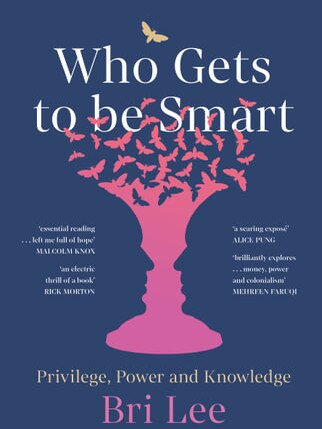
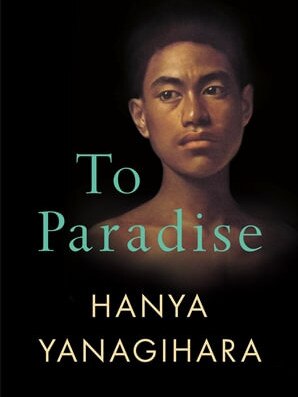
At the top of my summer reading stack, I have the recent Booker Prize-winning novel, The Promise by Damon Galgut and Crossroads by Jonathan Franzen. I also have so many proofs to read while getting ready for a new year of bookselling, the standout being To Paradiseby Hanya Yanigihara, which is the long-awaited sequel to one of Gertrude & Alice’s all-time favourite novels, A Little Life.
Like most of us, I’m hoping that these lockdowns are finally behind us and my reading can get back to the normal rhythm of reading a couple of books a week.
Jane Turner owns the Gertrude & Alice bookshop in Bondi.
-
Peter Craven
Some of the new books this year have been extraordinary. In the sphere of pure fiction Roberto Bolaño’s Cowboy Graves (Pan Macmillan) fills the reader with that uncanny awe that comes only in the presence of a supreme originator, the one in a thousand even among the most gifted, who reinvents the form of fiction as if they had no determining precedent.
Karl Ove Knausgaard is another of the looming grandees of contemporary fiction and his dazzlingly translated new novel, The Morning Star (Penguin Australia) uses that seductive device, multiple narrators to intimate a potential apocalypse.
It’s impassioned and grand but it’s almost a garrulous pilgrims’ journey towards the shock of new and terrible heavens and earths.
The most recent volume of Helen Garner’s diaries How To End A Story (Text) from the 90s is more continuous than any of its predecessors –– less grounded in epiphanies and fortuitous felicities – but it is a devastating portrait of the breakdown of a marriage even for those of us who have known the story for a long time and the perspectives are devastating, and there is something wholly disarming about the extent to which Garner is willing to expose her frailties.
But this is prima facie evidence that she is a diarist of genius. When people want to know what life was like – blow by blow, and at the edge of the existential precipice – in late 20th century Australia they will go to Garner’s diaries as a treasure hoard, a staggering amalgam of art and reality.
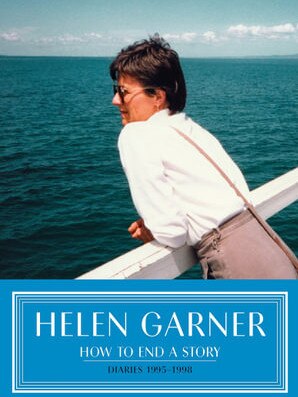
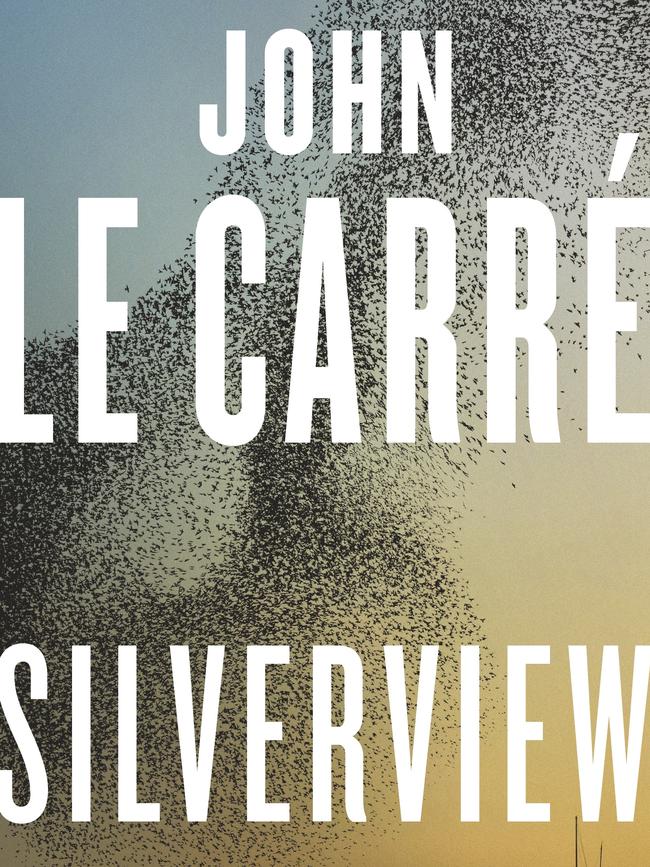
Stephen Downes’ The Hands of Pianists (Fomite) is different again even though it seems to meld a fictive style, imaginative in its every jot and tittle, like a poet – with a dark and disturbing simulacrum of the documentary.
The style and the strategies derive from WG Sebald but the wonder is that Downes inhabits them and makes them his own, equalling the master he emulates, in the way the Webster of The Duchess of Malfi equals Shakespeare.
He. (Text) by Murray Bail has an unearthly purity and impersonality, despite its subject matter: a book compounded of strangeness and apprehension. Humankind does not live by art alone so that Hermione Lee’s Tom Stoppard(Allen & Unwin) is a superb portrait of the great dramatist and charmer.
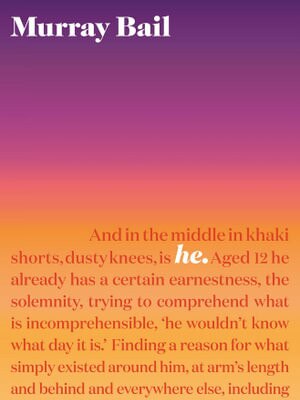
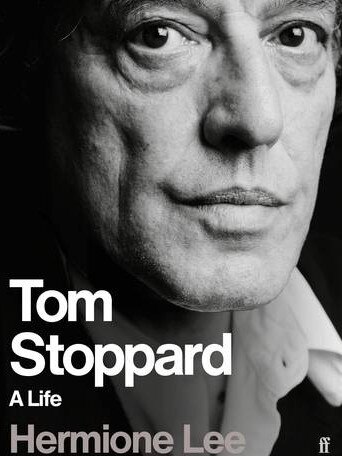
It was also fascinating to read the last work by that great trashmeister John Le Carre and catch the faint luminescence of his enchantment in Silverview (Penguin Australia). Miriam Margolyes is one of those actors – silken voiced and shameless – who just asks Daniel Day Lewis if he’s doing it with Winona Ryder, treasure that she is, in her memoir This Much I Know (Hachette).
In Putting The Rabbit in the Hat (Penguin Australia), Brian Cox talks about burning crosses that prevented him from getting a role in Harry Potter, how Ian McKellen is a front foot actor, and how Laurence Olivier, old and constantly forgetting his lines in his TV Lear, would suddenly shriek that a distinguished contemporary would never be the f*cking actor he was! There’s also the scintillation of David Williamson’s memoir Home Truths (Harper Collins).
Peter Craven is a cultural critic.
-
Mark Rubbo
I think I’ve read a lot more this year not because I’ve had more time but because I’ve rediscovered the pleasure and stimulation reading gives me; above all, books let me experience lives and emotions that aren’t necessarily mine.
I approached Jonathan Franzen’s giant novel Crossroads (4th Estate) with great anticipation; there’s something about the way Americans write fiction, monumental fiction and Crossroads doesn’t disappoint. Set in the early 1970s the Hildebrandt family appear to be good liberal Christians preparing for Christmas. Russ the patriarch is lusting after one of his parishioners and bitterly jealous of his colleague who runs the popular youth group, his son Perry is dealing drugs and the rest of the family is coming apart with its contradictions. This novel is addictive.
The Dawn of Everything – A New History of Humanity (Allen Lane) by anthropologist David Graeber and archaeologist David Wengrow turns the ideas of human history as popularised in books like Harari’s Sapiens completely on its head. Harari and writers such as Jared Diamond argue that it was the advent of agriculture that led to the creation and organisation of society to deal with surplus production, Graeber and Wengrow dispute this, arguing that hunter gatherer communities had quite sophisticated ways of organising and that we can learn from these examples. Graeber astounded us with his magisterial book, Debt, and sadly died a few weeks before completing The Dawn of Everything.
Love & Virtue (Ultimo) is the first book by young Australian writer Diana Reid; it chronicles the friendship of two young women who meet as residents in a prestigious university college. Against the background of drinking, drugs, and casual sex it grapples with the concept of consent. Michaela, the scholarship girl from Canberra is desperate to be liked and to fit in. If this means brushing aside a possible rape and starting an affair with her lecturer, then so be it. This is an amazing debut from a young writer off to a brilliant start to her career.
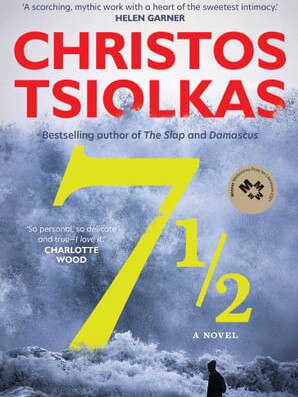
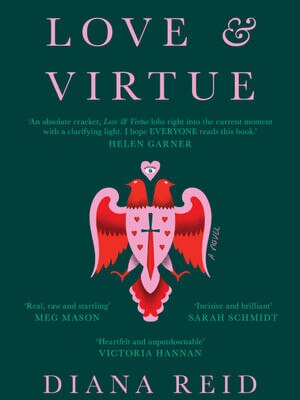
Seven and a Half (Allen & Unwin) by Christos Tsiolkas was reviewed unfavourably in these pages a few weeks ago; I just loved this novel about a mid-career writer feeling jaded and disillusioned about the pressures on him to write books that will appeal to his liberal, progressive audience. He wants to write about beauty, a novel without any other agenda. So begins a novel within the novel about a middle-aged gay porn star who is asked to do one last gig that will financially help his family.
In Moonland (Scribe) is the second novel by Miles Allinson. He won the Victorian unpublished manuscript award for his first novel, The Fever of Animals, in 2014, so I’ve been waiting for this. A young man has become a father, and this prompts him to think about his own father who died before he could really know him. He seeks out his father’s friends to find out what he was really like. A formative event in the father’s life was a trip to India, to Pune, to the Ashram of Bhagwan Shree Rajneesh. In this section Allinson captures the absurdity and contradictions of the Rajneesh movement that attracted so many gullible young westerners in the late 70s and 80s. In Moonland is a clever and rewarding book.
Mark Rubbo is the proprietor of Readings, Melbourne.
-
Gideon Haigh
Monstrous rich families never go out of fashion, the Roys of Succession and the Roses of Schitt’s Creek having succeeded the Ewings, Sopranos and Bluths of yesteryear. But art can never quite rival life, as demonstrated by two brilliant journalistic studies this year. John Preston’s Fall (Penguin) somehow finds new light to shed on the bloated corpse of media magnate Robert Maxwell 30 years after the mysterious end of his enigmatic life, in co-operation with but independent of his nearest kin.
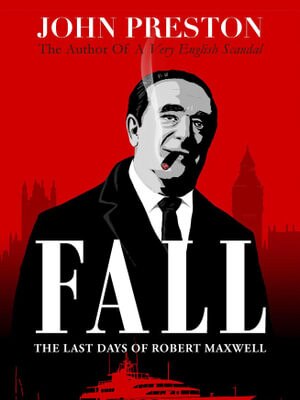
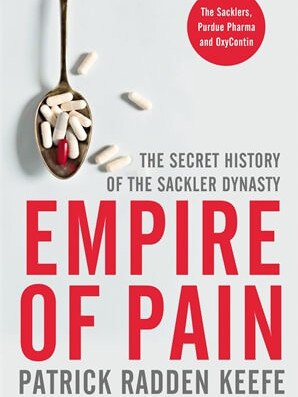
Patrick Radden Keefe’s Empire of Pain (Pan Macmillan) traces America’s opioid epidemic to the greed, opportunism and self-glorification of the diabolical Sacklers of Purdue Pharma, righteously repudiating their decades of reputation laundering. 2021 was notable as much, however, for its rediscoveries, including two that bookend the German experience of Nazism. The manuscript for Ulrich Boschwitz’s The Passenger (Pushkin Press) had been in archival limbo since the novelist’s death in 1942, aged 27, sunk by a U-boat in the Atlantic. The story of a wealthy Jew in headlong flight from the Kristallnacht turns out to be an uncanny premonition of the Holocaust: “Perhaps they’ll undress us first and then kill us, so our clothes won’t get bloody and our banknotes won’t get damaged.”
Horst Kruger’s memoir The Broken House (Random House) was published in Germany in 1966. Kruger was a child during Hitler’s rise, a youth at Hitler’s ascension, a young adult through the war, and much aged by the peace. His before, during and after tales of Nazism and its reckonings are unsparing, of his naivety and frailty as well as his country’s complicity. “1945, Zero Hour”, Kruger’s account of his surrendering to the Americans, is assuredly rare in the annals of war writing: what does it take to deliver oneself into the hands of an enemy one has so elaborately demonised in order to fight them?
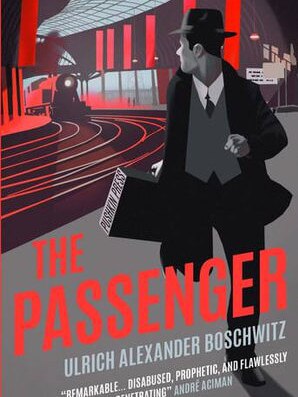
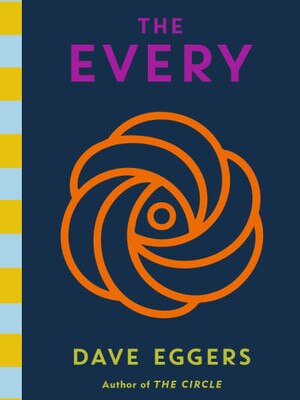
This year also marked the centenary of the German novelist Gert Ledig, which prompted me to finally read his 1955 novel The Stalin Front (NYRB) in Michael Hofmann’s 2004 translation, and from the very first line of this story of the carnage of the Eastern Front in World War II you feel under attack. The novel was rejected by 50 publishers, and you understand why: it inundates your senses, whirls you into confusion, merges German and Russian until they are almost indistinguishable and all victims. It’s short but brutal.
Francis Spufford’s Light Perpetual (Allen & Unwin) by contrast, allows five children to escape a real life slaughter, the vaporising of a Woolworths in London by a German V2 in 1944, and traces the lives they might have led – a virtuoso feat of imaginative writing and empathy. Thankfully they do not live long enough to glimpse the dystopian future envisioned in Dave Eggers’ The Every (Penguin Books Australia), his long-awaited sequel to The Circle, which would be grimly depressing were it not so delectably inventive and au courant.
Gideon Haigh is a writer and critic.
-
Antonella Gambotto-Burke
Two books, one subject for my books of the year.
American songwriter Taylor Swift’s 10-minute reworking of All Too Well – said to be about her relationship with carelessly cruel, older actor Jake Gyllenhaal – has nothing on Sylvia Plath’s poetry in the wake of her split from future poet laureate Ted Hughes. Even now, over half a century after Ariel (Faber Poetry) was posthumously published, its Palladian architecture electrifies.
Stasis in darkness.
Then the substanceless blue
Pour of tor and distances.
Incontestably brilliant, Plath had a heart so fierce that Hughes could only feel important in comparison by destroying her sense of feminine value. He slapped and hit her, which resulted in a miscarriage. And yet even in her anger, Plath remained devoted, idealising him and their love. Hughes upped the ante: he began to have affairs. Ostensibly of a horse, she wrote:
The brown arc
Of the neck I cannot catch.
In public, Hughes played Plath’s champion well but refused to pull his weight domestically and emotionally, meaning her ability to write was impaired. Abandoned by him with their two children in a foreign country, she rapidly disintegrated.
The winter finished her.
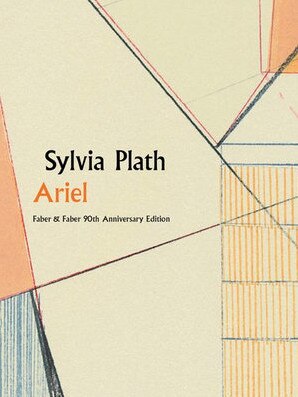
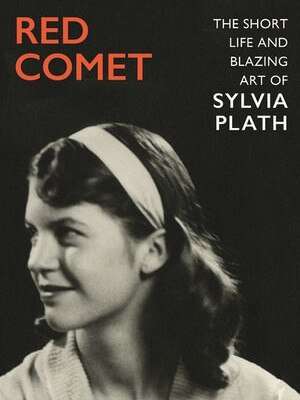
After Plath’s death by suicide, Hughes withheld access to unflattering documents from biographers and feigned a compassion that was never evident with any woman who challenged him. His contempt for the feminine had always been evident. Hughes’ sense of masculine status was inflated by his seductions, but sexually assertive women were referred in poems by him as “cheap tarts”, “great farmy whores”, “foxy slut[s]”, and so on.
The American academic Heather Clark captures – and contextualises – this still-shocking emotional brutality in Red Comet: The Short Life and Blazing Art of Sylvia Plath (Jonathan Cape) a biography so compelling that at 1152 pages, it doesn’t seem remotely long enough.
Plath’s notes on Falcon Yard, the sequel to The Bell Jar, reveal that she was – at least on a subconscious level – aware of the implausibility of her marriage: “Denise Peregrine: Heroine, kinetic. Voyager, no Penelope. Leonard: Hero. God-man, because spermy, creator. Dionysiac. Pan. How to lead pan into world of toast and nappies? Falcon Yard: Love, bird of prey.” On learning of Hughes’ affair with Assia Wevill, “the most beautiful woman in London”, Plath burned the manuscript. For her part, Wevill, no longer able to tolerate Hughes’ stony malignancy, also later suicided, simultaneously killing their sedated four-year-old daughter Shura. As Plath had written,
White
Godiva, I unpeel –
Dead hands, dead stringencies.
These chilling modern gods have only grown more powerful with time, perhaps in contrast to the sexually detached lives characteristic of the 21st century. The grief and passion that burn at the heart of Plath’s mythology exist as an eternal rebuke to the patriarchal ideology that continues to deform humanity.
And yes, Jake Gyllenhaal, that includes you.
Antonella Gambotto-Burke’s new book, Apple, is now available for pre-order.
-
Luke Slattery
Publishers are preparing a flotilla of novels set in the early days of the pandemic but don’t expect to see many as jaunty and nimble as The Sentence (Hachette) by Louise Erdrich, winner of the 2021 fiction Pulitzer, for The Night Watchman. Erdrich’s narrator, a Native American party girl named Tookie, lands in prison after a macabre Breaking Bad-style drug crime caper and there she discovers, courtesy of a dictionary sent by a former teacher, the joys of the sentence, both the word and the grammatical form.
Tookie washes up at a Minnesota bookstore on her early release, and it’s the life of the book that anchors this novel, even if it is also part ghost story, part love story, and part “journal of a plague year”.
It ends with a “Totally Biased List of Tookie’s Favourite Books”, which is, of course, Erdrich’s; great choices they are, too.
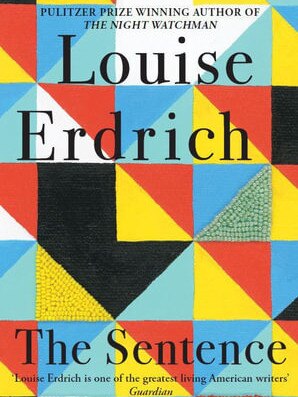
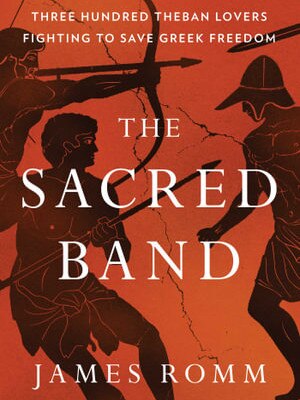
Next, where Karl Marx imagined Communism evolving out of the – as he saw it – fractured nature of advanced capitalism, American anthropologist David Graeber and archaeologist David Wengrow draw their message of human potential from the deep past. The Dawn of Everything: A New History of Humanity (FSG) is an exhilarating read, prickly and pugnacious, written in a state of unrelenting war with received wisdom. The authors – Graeber died, aged 59, as this enormously ambitious book was being prepared for publication – draw on new research from their academic disciplines pointing to a surprising degree of sophistication and subtlety in pre-agricultural societies.
In a brilliant attack on the European Enlightenment, they don’t so much deny the integrity of its core ideals as trace them – equality, freedom of expression, a belief in reasoned debate – to the so-called primitive societies Europeans encountered in North America in the early years of colonisation.
The classics have been with us for a very long time and most new publications in the area are fresh translations and reinterpretations; only rarely does an archaeological discovery yield the outlines of a new story.
American classicist James Romm has gone back over an old archaeological find, in the manner of a sleuth reviewing a cold case, to piece together the story of The Sacred Band: Three Hundred Theban Lovers Fighting To Save Greek Freedom. The mass grave unearthed in 1881 yielded the skeletons of these warrior-lovers, decimated by Philip of Macedon and his son Alexander at the battle of Chaeronea in 338 BC. In many cases their arms were linked, in death as in life. A war story and a love story in one story.
Finally, The Netanyahus: An Account of a Minor and Ultimately even Negligible Episode in the History of a Very Famous Family (NYRB) by Joshua Cohen riffs on the conventions of the campus novel, the Jewish novel and the novel of ideas – rather neglected genres in mainstream Australian fiction. But it’s the inventiveness and verbal play that really give this short novel its zest, its comic sparkle and humane warmth. Cohen takes his bearings from a tale told to him by the late Harold Bloom, the Yale humanities professor and champion of the literary canon, about a campus visit by an obscure Israeli academic, Benzion Netanyahu, who turned up for a job interview with his wife and three sons; one of whom, Benjamin, would become Israel’s longest-serving prime minister. From this premise Cohen weaves a sly commentary on identity politics, a satire on American intellectual life, and a tale of two shaky marriages on a hugely comic collision course.
Luke Slattery is a writer and critic.
-
Cheryl Akle
For most of us, 2021 had its challenges. Maybe because of this, it has been an excellent year for books. Reading has, for many people, been a form of escape and solace. I found comfort in women’s voices and stories, and particularly enjoyed reading some of the wise and inspiring memoirs released this year.
BAFTA award-winning actor Miriam Margolyes delivered the hilarious and heartwarming This Much Is True, which had everyone at Better Reading in stitches.
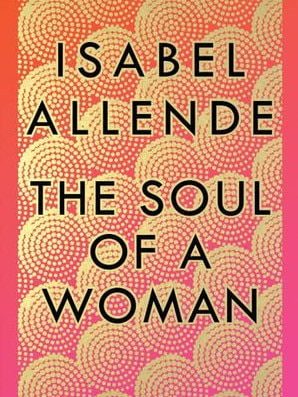
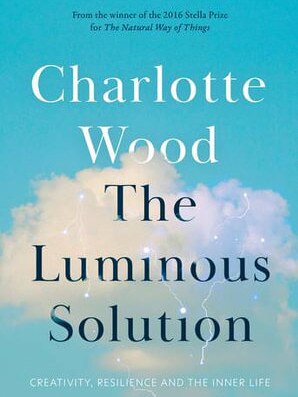
The indomitable Isabelle Allende published The Soul of a Woman, taking readers through her journey of life as a feminist while offering a call to arms for young women everywhere.
Helen Garner released the third instalment of her diaries, How to End a Story, covering four eventful years from 1995, including the demise of her marriage. The full force of Garner’s splendour is displayed here in this portrait of love and pain, loss and betrayal.
Another gifted Australian writer, Charlotte Wood, released The Luminous Solution, which explores creativity and the artist in us all. Using her doctoral studies and decades of experience as an artist, Wood questions her own internal world, encouraging readers to do the same. Finally, literary icon Ann Patchett released These Precious Days, an illuminating collection of previously published essays that, together, made for wonderful reading.
It has also been a year to celebrate First Nations stories, starting with Born Into This, a debut collection of short fiction from Tasmanian Pakana author Adam Thompson. This often dark, often funny, always intelligent read addresses the universal themes of identity, racism and heritage destruction from a wholly original perspective. I also enjoyed Dr Cindy Solonec’s Debesa.
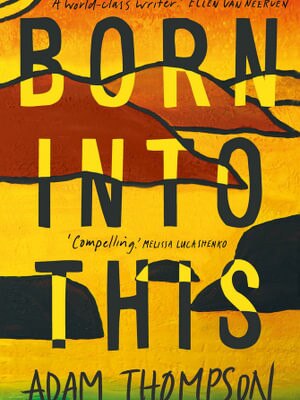
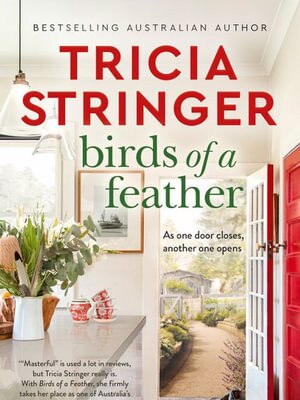
Australian authors continue to dominate in crime, thriller and general fiction genres. A few standouts were Christian White’s The Wild Place, an engrossing domestic noir, filled with twists and turns, and Tricia Stringer’s warm, wise and sharply observed family drama Birds of a Feather. Judy Nunn’s Showtime! was a total showstopper, taking readers on a dazzling journey through Australia’s golden age of show business.
The Asylum Seekers Resource Centre published the beautifully illustrated hardback Seeking Asylum: Our Stories. This moving and eloquent read shares the experiences of dozens of refugees who have sought asylum. And finally, one of the best cookbooks of the year is Neil Perry’s 10th – and perhaps finest – book, Everything I Love to Cook. Perry revisits some legendary dishes from both his restaurants and his newspaper column, adding some seriously delicious new favourites, and provides great advice on how to boost your kitchen skills. Everything I Love to Cook is everything great about cookbooks – and also one of the best books this year.
Cheryl Akle is founder of Better Reading.



To join the conversation, please log in. Don't have an account? Register
Join the conversation, you are commenting as Logout